Free Shipping over $50+ Order..
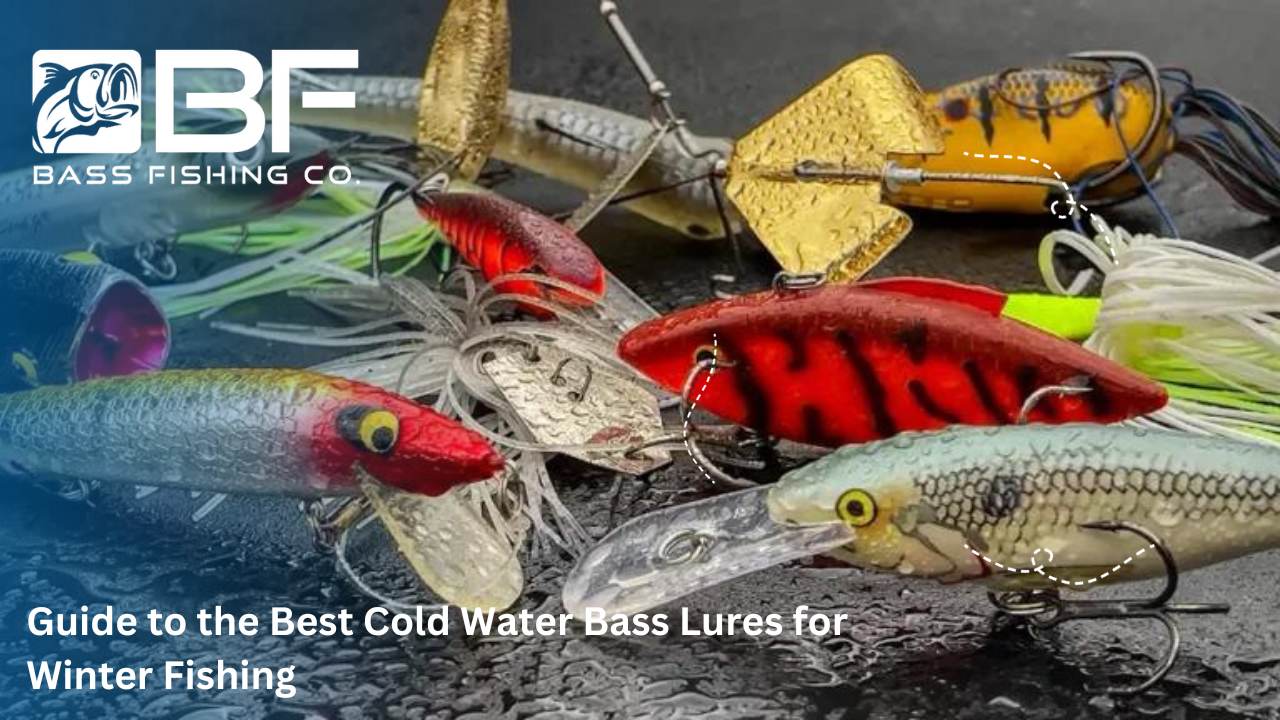
Guide to the Best Cold Water Bass Lures for Winter Fishing
When the winter months roll around, many bass anglers hang up their rods and reels, believing that the cold water has sent the bass into a deep slumber. However, for those who are willing to brave the cold weather, there is a great opportunity to catch big bass in cold water. The key to success lies in choosing the right lures and techniques. In this comprehensive guide, we will explore the best cold water bass lures and the strategies that will help you hook those elusive winter bass.
Understanding Cold Water Bass Fishing
Before we dive into the specifics of lures and techniques, it’s essential to understand the behavior of bass in cold water. When water temperatures drop, bass become less active, and their metabolism slows down. They tend to move to deeper water where the temperature is more stable, and finding food becomes a bit more challenging. However, this doesn’t mean they stop feeding altogether. Cold-water bass can still be enticed to strike if you present them with the right bait in the right way.
The Winter Months and Bass Behavior
- Time of Year: Winter fishing typically refers to the period from late fall through early spring when water temperatures are at their lowest.
- Cold Weather: As temperatures drop, bass become more lethargic and seek warmer areas.
Choosing the Right Lures for Cold Water Bass Fishing
Selecting the best lures for cold water bass fishing is crucial. In these conditions, bass are less likely to chase after a fast-moving, high-energy bait. Instead, they prefer an easy meal that doesn’t require much effort to catch. Here are some of the best lures for cold water bass fishing:
1. Blade Baits
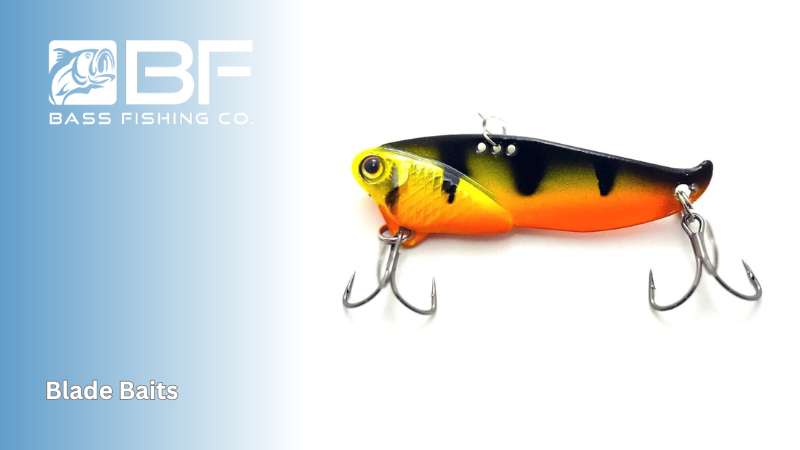
Blade baits are a fantastic choice for cold-water bass. These lures have a tight wobble and produce subtle vibrations that can entice sluggish bass. Retrieving them slowly through the water column allows you to keep the bait in the strike zone longer.
2. Lipless Crankbaits
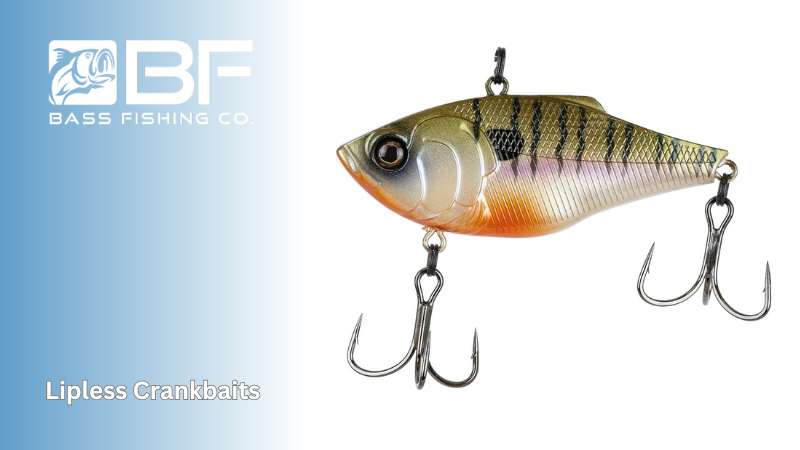
Lipless crankbaits are versatile lures that work well in cold water. Their tight wobble and rattling action mimic dying baitfish, making them an attractive choice for bass looking for an easy meal.
3. Jigging Spoons
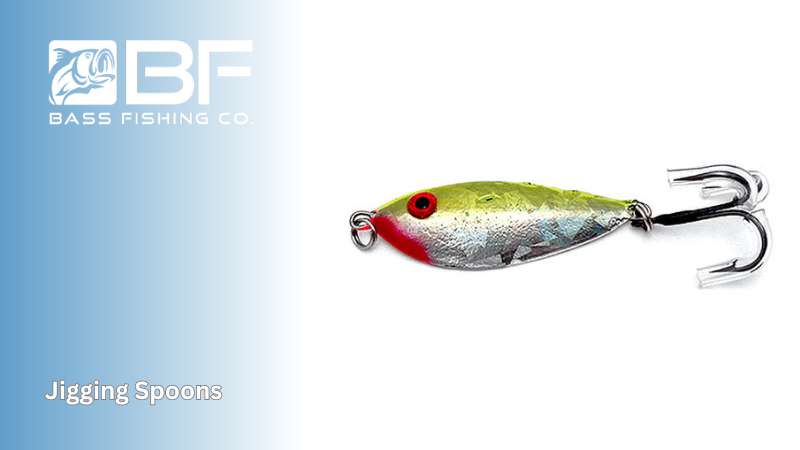
Jigging spoons are excellent for fishing in deeper water. Their fluttering action imitates a wounded baitfish, making them irresistible to bass. Use a slow, methodical retrieve to maximize your chances of getting a reaction strike.
4. Suspending Jerkbait
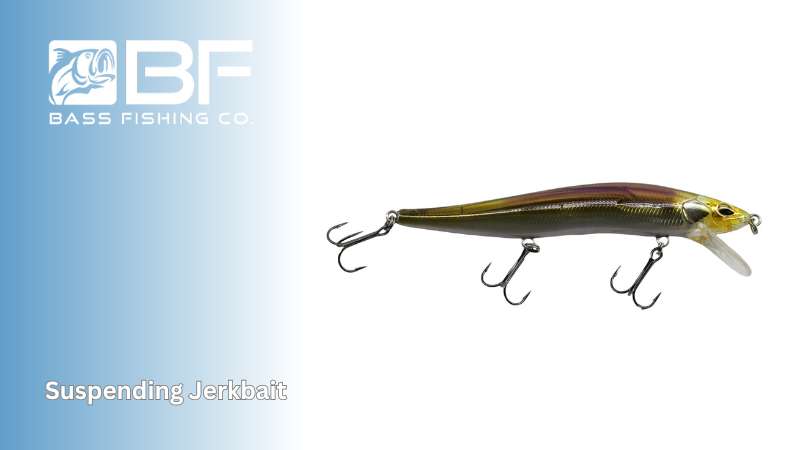
Suspending jerkbaits excel in cold water because they can be worked slowly and paused for long periods. The subtle action of a suspending jerkbait can trigger strikes from lethargic bass.
5. Finesse Worms
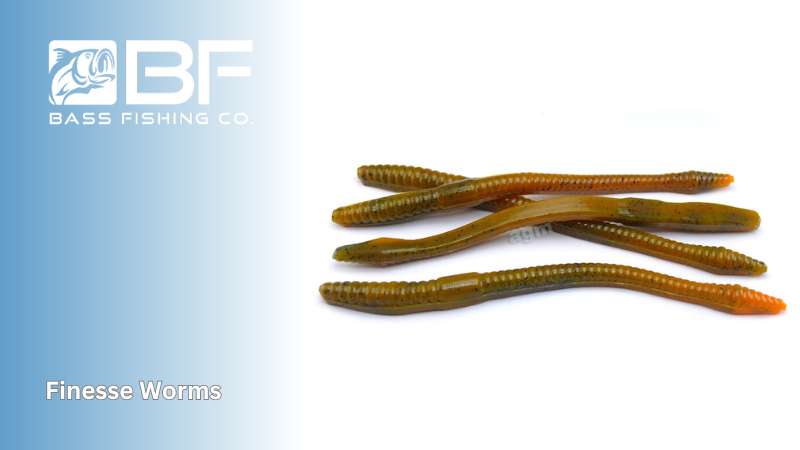
Soft plastic finesse worms are a go-to option for cold-water bass. Rig them on a drop shot or shaky head rig and work them slowly near the bottom. The natural presentation of finesse worms is hard for bass to resist.
Strategies for Cold Water Bass Fishing
Now that you have an idea of the best lures for cold water bass, let’s explore some strategies and tips to increase your success during the colder months.
1. Fish Deeper Water
During winter, bass tend to move to deeper water where the temperature is more consistent. Use your electronics to locate schools of bass in deeper cover or along channel swings. Vertical cover like rock piles and bluff walls can be hotspots for cold-water bass.
2. Slow Down Your Retrieve
Cold-water bass are not as aggressive as they are in warmer months. Slow down your retrieve and give the bass a chance to react. Long pauses between movements can often trigger strikes from lethargic bass.
3. Pay Attention to Water Clarity
Clear water can be a double-edged sword in cold weather. While it allows bass to see your bait more clearly, it also means they can scrutinize it more. Use lures with subtle actions and natural colors in clear lakes to increase your chances.
4. Target Shallow Flats
In some situations, targeting shallower water can yield results, especially during sunny days when the water temperature may rise slightly. Bass may move into shallow flats to bask in the sun and feed on baitfish.
5. Experiment with Different Depths
Bass may be at various depths in cold water, depending on factors like available food and water temperature. Don’t be afraid to experiment with different depths until you find where the bass are holding.
The Importance of Presentation
Regardless of the lures you choose, presentation is key when fishing for cold-water bass. Pay attention to the following aspects:
- Rod Tip: Use a sensitive rod to feel subtle strikes, as cold-water bass may not hit aggressively.
- Line: Light line is often a better choice in cold water, as it provides better lure action and sensitivity.
- Long Casts: Make long casts to cover more water and avoid spooking the fish.
- Lure Action: Choose lures with a tight wobble and subtle action to mimic the movements of dying baitfish.
Best Places to Find Cold Water Bass
Finding the best places to target cold-water bass is essential for a successful winter fishing trip. Consider these locations:
1. Natural Lakes
Natural lakes tend to have stable water temperatures in winter, making them a great place to find cold-water bass. Look for underwater structures like rock piles and long points.
2. Open Water
Bass often gather in open water during the winter months, especially if schools of shad are present. Use your fishfinder to locate these schools and position your bait accordingly.
3. Creek Channels
Creek channels can act as highways for bass in the winter. Follow the channel swings and use your lures to cover these areas thoroughly.
4. Rocky Banks
Rocky banks can hold heat and attract baitfish, making them attractive to cold-water bass. Cast your lures along these structures and vary your retrieve to find what works best.
Tips from Bass Pros
Even the best bass anglers have their preferred methods for cold-water bass fishing. Here are some tips from seasoned pros:
- Kevin VanDam: “In cold water, I like to fish a flat-sided crankbait with a tight wobble. It imitates a dying baitfish and triggers reaction strikes.”
- Mike Iaconelli: “Don’t be afraid to downsize your baits in cold water. A smaller profile can be more appealing to sluggish bass.”
- Aaron Martens: “Work your lures with long pauses in between. Sometimes, that’s when the bass can’t resist striking.”
Frequently Asked Questions (FAQs)
1. When is the best time for cold-water bass fishing?
The best time for cold-water bass fishing is during the winter months, which typically range from late fall through early spring. Bass are more active during the warmer parts of the day in these months.
2. What types of lures work best for cold-water bass?
Lures with tight wobbles and subtle actions are ideal for cold-water bass. Blade baits, lipless crankbaits, jigging spoons, suspending jerkbaits, and finesse worms are among the top choices.
3. How should I adjust my presentation for cold-water bass?
In cold water, it’s essential to slow down your retrieve, make long casts, and use light line. Additionally, incorporating long pauses into your lure’s movements can trigger strikes from lethargic bass.
4. What are the best places to find cold-water bass?
Look for bass in deeper water, natural lakes, open water, creek channels, and along rocky banks. These areas often hold cold-water bass seeking more stable temperatures and sources of food.
5. What should I do if the water is clear in cold weather?
In clear water, it’s essential to use lures with subtle actions and natural colors. Bass can see your bait more clearly, so presentation and lure selection become even more critical in such conditions.
Conclusion
While cold-water bass fishing may seem challenging, it can be incredibly rewarding. With the right lures, techniques, and knowledge of bass behavior in colder months, you can increase your chances of hooking that big winter bass. Remember to slow down your presentation, target the right areas, and adapt to changing conditions. With practice and patience, you’ll find that cold-water bass fishing can be a great way to extend your bass fishing season and catch some of the biggest bass of the year. So, bundle up, grab your gear, and get out on the water for a great time of winter fishing!

[…] fishing often involves long casts to reach fish in deeper waters. Consider a longer rod, ideally around 10 to 12 feet, for increased casting distance. However, […]
[…] anglers face unique challenges, including extreme temperatures and the potential for exposure to cold water. Investing in high-quality, purpose-built gear is the first and most vital step toward ensuring a […]